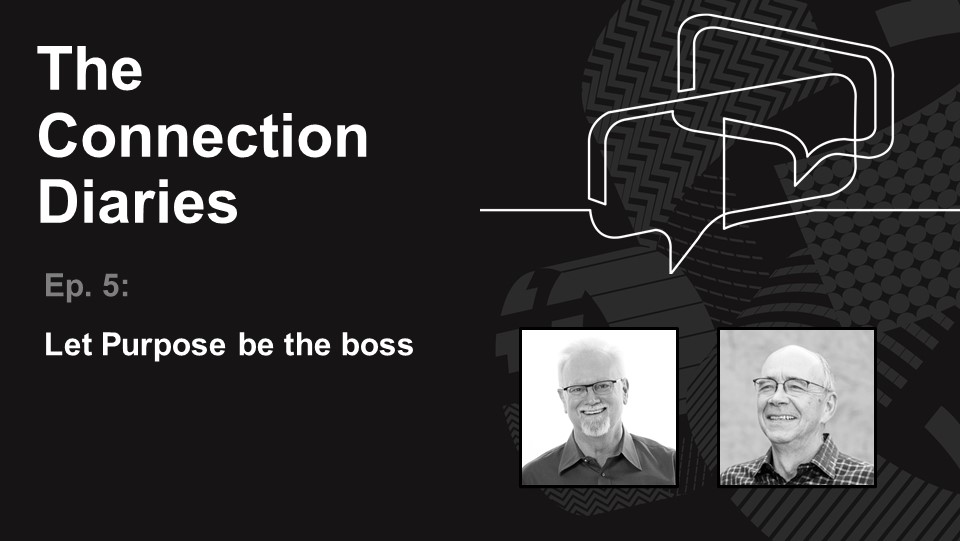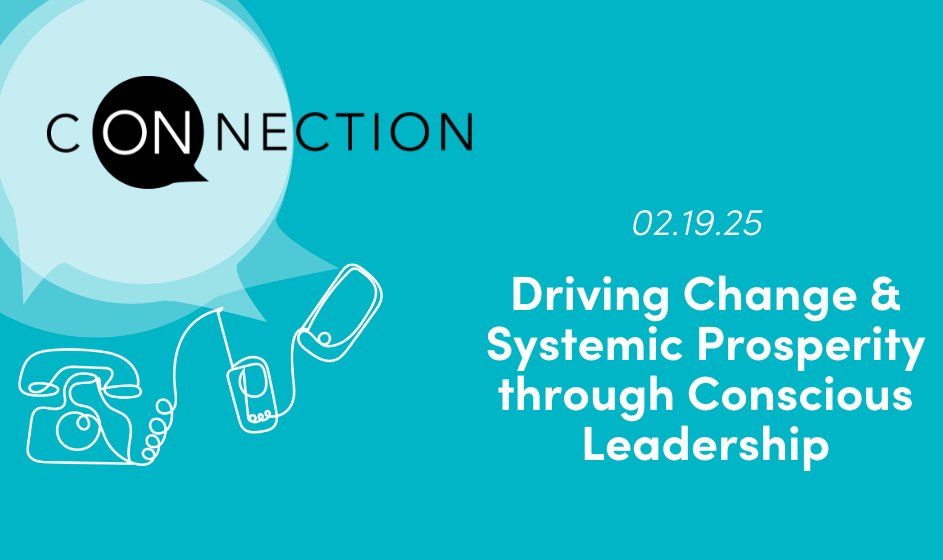Purpose gives us a place to stand regardless of our changing circumstances
One of the most constraining factors for leaders and organizations right now is an overwhelming sense of uncertainty. In these challenging times, we all need our terra firma – a solid place to stand as we make decisions and move forward in ways we will be proud of on the other side.
Purpose is the mutual resolve of a community. When we all align around what matters and what we’re here for, we free up individuals to more confidently make decisions, share what they are learning, and be agile in taking timely opportunities for new action. The greater our alignment, the thinner the rulebook and the faster people can move independently and contribute.
What’s the difference between a purpose and a goal?
How do you differentiate a purpose from a business goal? A collective purpose answers the question: “For the sake of what does this goal exist?” An effective purpose inspires and moves us to act, serving as a frame for evaluating what our goals are and why.
Crisis is the proving ground for Purpose
Purpose is the aspect of any organization or community that survives through all kinds of challenges. It’s that which you most need to preserve. Our priorities may shift when a crisis hits, but if we stay true to purpose when times are tough, people have incredible faith in it the rest of the time.
A purpose that’s untested by chaos and disorder has not yet earned the right to endure over a long time. Crises like the one we’re in act as a proving ground for what we said was truly important for us.
To find more of our insights and tools on Purpose, you can explore the Purpose section of The Vitality Imperative and it’s online resources.
We will be hosting a live 30-minute conversation on this topic next week. Stay tuned for more details and registration by subscribing for our newsletter. We will continue to explore this topic and many others related to how we stay connected and keep creating value in challenging circumstances, so stay tuned for future episodes of The Connection Diaries.
If you and your community have been having inspiring conversations and ideas about how to navigate the COVID-19 reality, we would love to hear about them! Please comment below or connect with us on LinkedIn. Let’s unleash our collective brilliance.
Full Transcript
Mickey: Hello everyone this is Mickey Connolly. I’m here with Jim Maroni, who’s my partner at Conversant it and also the co-author of the vitality imperative. Jim, you know in the vitality imperative we actually cared a lot for the notion of purpose and even called it the mutual resolve of a community, and you’ve been saying that purpose is really important now, maybe more than ever in the midst of this whole COVID crisis. What has you say that?
Jim: So much of what I’m noticing and, I’m sure you are too is we go to work with clients, is one of the things that’s feeling most constraining right now is the sense of uncertainty, that we don’t know where things are going. We’re confused about what makes sense now and how we’re going to decide among the various choices that we have—many we don’t like. So the question becomes where’s the Terra Firma? Where is there land we can stand on that we can start the process of creating independent action so that we can have self-supervising independent actors out there, not only making us smarter from what they see, but being agile and taking advantage of the opportunities that they have in that moment. Creative new opportunities especially is what’s called for. And what I think is so important is the Terra Firma is purpose. What is it that we’re here for, what is the mutual resolve of this community, is the thing they can align around to know what actions that they can take. Because what I’ve noticed and what’s been said is that the greater alignment, the faster people can move independently. And not only that, the greater alignment allows for a very thin rule book where I don’t have to worry about, am I going to get my wrist slapped or do I need to check through the bureaucracy, to take a new action. So purpose fundamentally gives that solid ground for people to start to look at, how do I take advantage of all these smart people to take new action and be smarter in the moment.
Mickey: You’re reminding me of one of the phrases that you and I both admire, which is “make purpose the boss.”
Jim: Absolutely.
Mickey: That’s actually related to that magic of alignment you’re pointing to. How do you differentiate a purpose from a business goal? So right now for instance, we hear clients saying “it’s really important for us to preserve cash as we move through this crisis.” All right, what’s the difference between that and a purpose?
Jim: So I would look at two things. The first thing is: the difference between a purpose and a goal is the purpose answers the question, “for the sake of what does this goal exist?” So if we’re saying we’re going to preserve cash, for example. Preserve cash for the sake of what? What does preserving cash get you that not preserving cash doesn’t get you? So it answers that question. I think the second thing is: it’s how we feel about it emotionally. A purpose hits us aspirationally, inspirationally. It calls forth. A goal for a lot of it can feel inert. It can feel almost robotic. So part of what I want to notice is when I hear the purpose, is it something that calls me? When I hear a goal, is it something that actually compels action in a different way? That’s the distinction in my mind between a purpose and a goal.
Mickey: I think that purpose is the aspect of any organization, enterprise, community that survives through all kinds of challenges. It’s that which you most need to preserve. So we may change some things about our business model. We may change some things about our goals. Our priorities may shift when a crisis hits like what’s happened right now. But what’s the very nature of our existence, our reason for being here? If we stay true to that when times are tough, people have incredible faith in it the rest of the time. There’s so many people that have done lovely crafting of good sounding purpose statements, and when times get really rough, they actually abandon that and just get desperate instead of really requiring themselves to be creative inside of the purpose—how do we preserve this? So what I think is crucial is that a purpose that’s untested by chaos and disorder has not yet earned the right to endure over a long time.
Jim: I love that, yeah. I think that’s fabulous ‘cause I believe, and I heard it said, that these are the times that people will end up telling iconic stories about. This is when your leadership will be the kind of thing that people will continue to talk about long after the circumstances are gone because this was the proving ground for what we said was truly important to us, and that’s purpose.
Mickey: Beautifully said. And for those of you who are with us, we will be hosting a 30-minute virtual gathering on this topic where you and other people like you from the people we know in the world will come together and they’ll give their examples of how purpose is allowing them to guide their way through this mess in a way that’s creating strength in the communities they lead. So we look forward to those of you who want to get into a little deeper version of this joining us. Jim, thank you very much. Anything you want to say in closing?
Jim: Just that I think for leaders, these are the critical times when they have an opportunity to distinguish themselves in their marketplace and with their people. And the way to do that, I’m convinced, is to be more connected to purpose and evoke that aspirational nature.
Mickey: Beautiful. Thanks, everybody.




